“I got stomach trouble — no guts.”
|
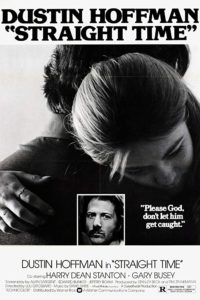
Synopsis:
After getting out of jail, burglar Max Dembo (Dustin Hoffman) attempts to go straight, but is mercilessly harrassed by his parole officer (M. Emmet Walsh) and soon finds himself in a life of crime once more. He and two old buddies (Gary Busey and Harry Dean Stanton) plan a major jewelry heist, while Dembo’s new girlfriend (Theresa Russell) worries for his safety.
|
|
Genres, Themes, Actors, and Directors:
- Dustin Hoffman Films
- Ex-Cons
- Gary Busey Films
- Harry Dean Stanton Films
- Heists
- Theresa Russell Films
Response to Peary’s Review:
As Peary notes, “Dustin Hoffman has one of his best screen roles as two-time loser Max Dembo”; in fact, Hoffman is so good it’s easy to forget he’s acting. While there are many exciting moments in the film, my favorite scenes are those between Dembo and his new girlfriend, played by a sexy young Theresa Russell (though I couldn’t quite figure out why she would want to stay with him). While Walsh’s “venal” harassment of Dembo is infuriating, what’s even more frustrating (though perhaps inevitable) is that Dembo allows his anger to lead him back into a life of crime. Indeed, Dembo’s pig-headedness prevents one from empathizing with him during the latter part of the film — though, as Peary points out, “at least we can relate to [Dembo’s] need to fit in somewhere.”
Redeeming Qualities:
- Dustin Hoffman as Max Dembo
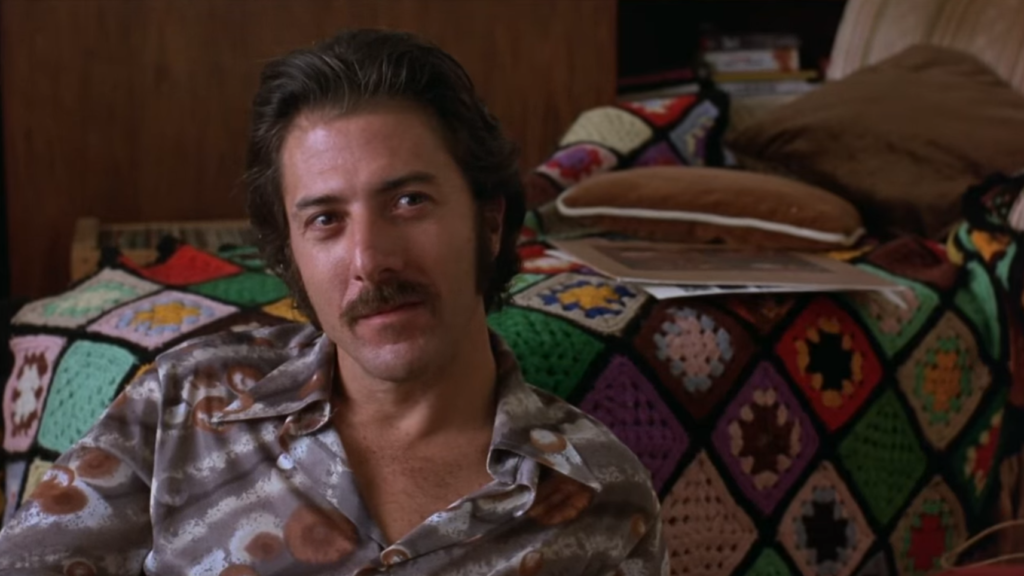
- Theresa Russell as Dembo’s loyal girlfriend
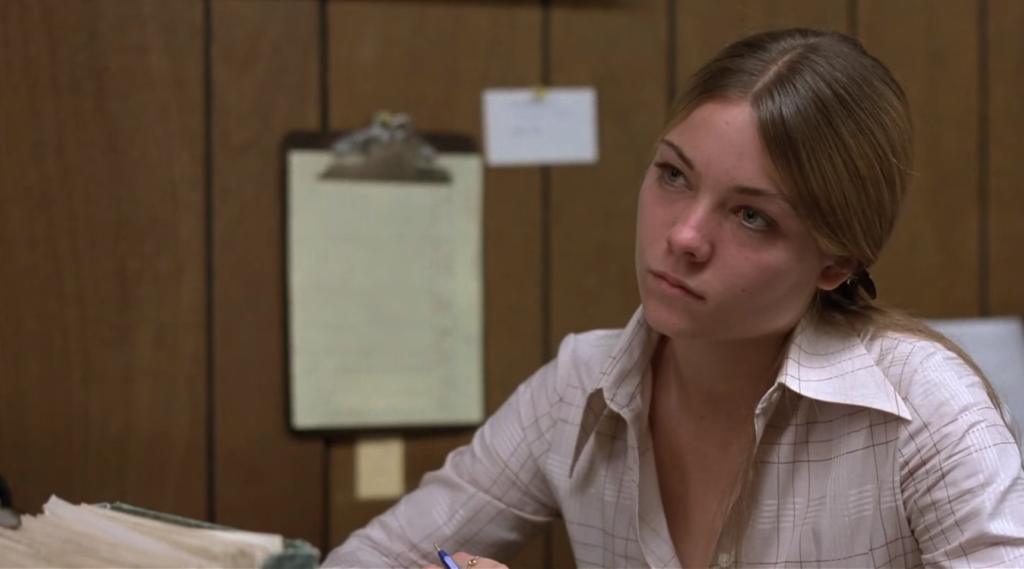
- Gary Busey and Harry Dean Stanton as Dembo’s buddies and partners-in-crime
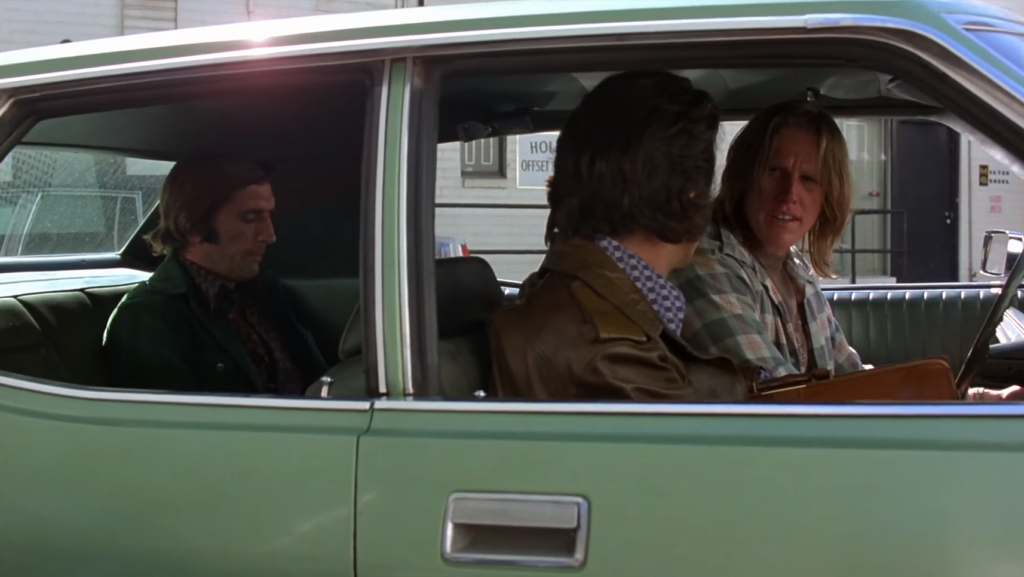
- Kathy Bates in a small supporting role as Busey’s concerned wife
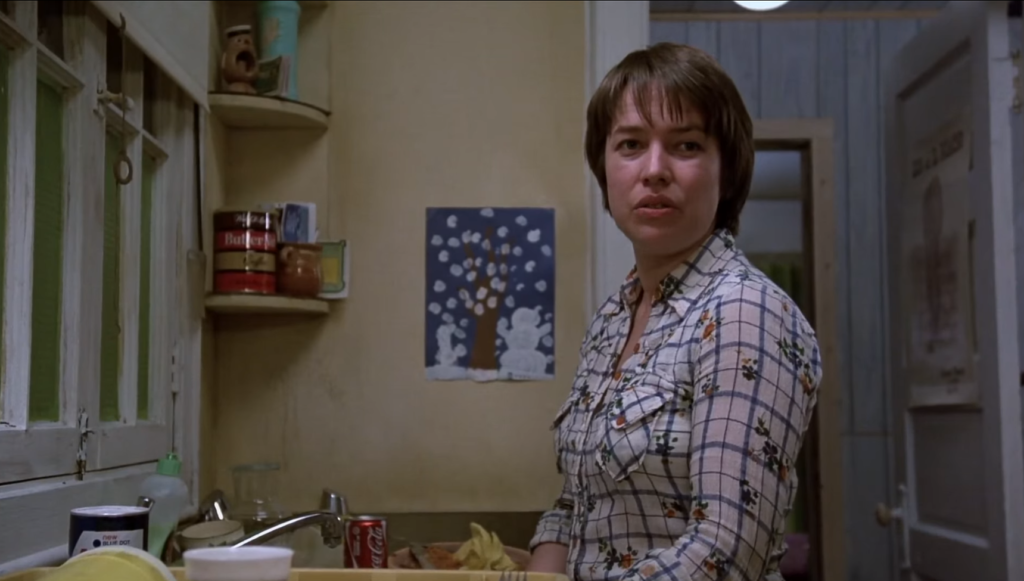
- An extremely exciting, well-directed jewelry heist in Beverly Hills
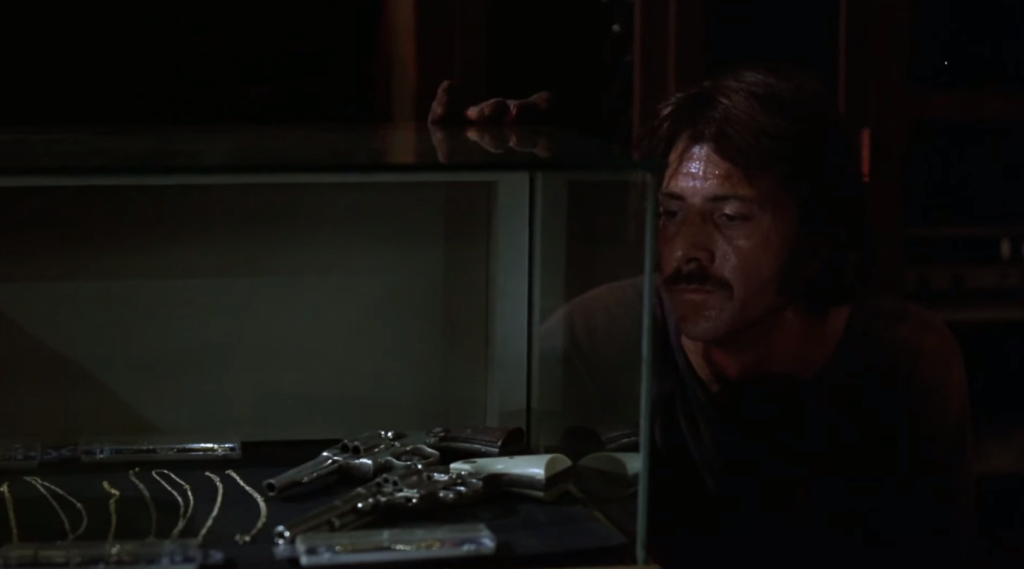
Must See?
Yes. This film is must-see viewing for Hoffman’s performance alone.
Categories
- Noteworthy Performance(s)
Links:
|
2 thoughts on “Straight Time (1978)”
This sleeper film went practically unnoticed despite a brilliant, natural performance from Dustin Hoffman. The first part, in which Max tries to follow the ‘right’ path, is totally unique. It expertly captures the alienation and exploitation that exconvicts have to deal with after being ‘institutionalized’ for so long. Max’s unsympathetic parole officer perfectly encapsulates the ‘system’.
The fine supporting cast includes Theresa Russell, Gary Busey and Emmett Walsh’s amoral parole officer (I’m yet to see a bad role from him).
The film, however, belongs to Hoffman. He brings a depth to the part that makes him totally apathetic when compared to the rest of ‘society’.
A must – for one of Hoffman’s best (and among his unexpected) performances, and for the uniqueness of the film itself.
I’m largely in agreement with both posts here. Until now, I’d only seen this on its release and a revisit was well worth it. I’d forgotten how riveting it is.
For me, the whole film seems to hang on a simple idea – one which is pointed up at the very end, as we’re shown a few mug shots (in reverse) reminding us of Dembo’s past crossings with The Law…and how young he was when first booked. Hoffman’s Dembo is not someone we want to sympathize with, really, yet we do for one reason: he reaches a point where he has a definite pang of conscience. He has briefly looked back on his life of crime (we get that impression, anyway) and has realized he’s sick of jail. That’s how the film starts – and that’s why we *want* to be on his side. Unfortunately, Dembo has a challenge ahead as the film begins…and we come to realize it’s a challenge his character is not up to.
What’s particularly interesting in this regard is something that happens about halfway through the film – which is when it really takes off (not that the film hasn’t been compelling in its own leisurely way up that point). Hoffman reaches the (arguable) conclusion that, no matter what, his desire to go clean is doomed to failure. And, from there, the film is a bat out of hell.
The acting is top-notch. Director Ulu Grosbard reveals a real gift for character illumination and for helping actors get deep under the skin. Although he made very few films (and did more stage work), Grosbard elicited terrific ensemble work (as well) esp. from the casts of ‘The Subject Was Roses’ and ‘Georgia’. (I’m actually curious to rewatch ‘Who Is Harry Kellerman…?’ now, since I’ve little memory of it.)
‘ST’ is slightly marred. We don’t know enough about Russell’s character to understand why she would go to the lengths she does with Hoffman (as a result, we’re to believe she’s something of an empty slate in significant ways) – and that’s a bit of the problem in the film. As well, the radio announcement of the jewelry store heist near the end is a bit clunky, although it’s obviously necessary news. However, the drawbacks are minor. This is quite a good movie; it gathers a cumulative punch. Perhaps that’s why a second viewing may draw you in even more.